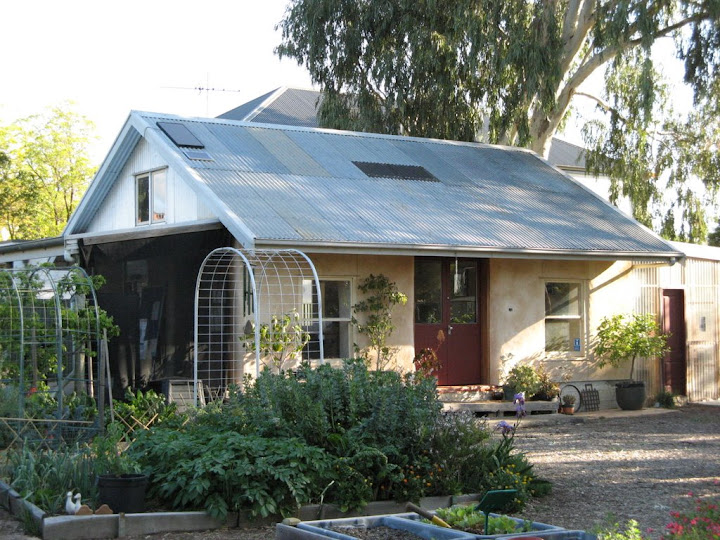
A position is available for a 12 month part-time internship which offers an opportunity to learn from 30 years biodynamic growing and small holding lifestyle in the Adelaide Hills.
2 days a week – negotiable times and days. Can be made of some ½ days (week days only) Times may vary depending on season and conditions. (this is farming which is not 9-5) There is no money exchange only skills and knowledge.
For more information on Nirvana Organic Farm http://nirvanaorganicfarm.blogspot.com.au
Application in writing by October 30th to:
Nirvana Farm 184 Longwood Rd, HEATHFIELD 5153
Further information Deb or Quentin 83392519 after dark, before 9pm.
BEYOND ORGANICS
Improve your soils water holding capacity.
A one day course to introduce the practical concepts of the biodynamic methods to farmers and gardeners.
The Bio -Dynamic method is a modern organic method that creates a holistic approach to building healthy soil, plants animals and humans.
The course covers history, concept of a living organism, soils, compost, special preparations that enhance nature and equipment required.
Sunday, Sept 23rd 2012.
8.30 am. -4.30 pm.
Cost: $140
Includes: notes, lunch, Membership of Adelaide Hills Biodynamic Group..
COMPOSTING AND MULCHING
Sunday, October 7th
9.00 - 12 30 $50
Principles of composting and mulching, techniques and materials used and how they can be used most effectively on your garden or farm.
ORGANIC VEGETABLES FOR YOUR TABLE
Sunday, September 30th
9.00—12.30 $50
Practical guide to establishing and maintaining a productive and healthy
vegetable garden.
INTRODUCTION TO MOON PLANTING AND USING THE PLANTING CALENDAR
Sunday, October 14th 9.00-12.30 $50
Working with the rhythms of nature can develop your skills in fine tuning your garden and can add a new dimension to your gardening experience.
ORGANIC FRUIT, NUTS & BERRIES.
Sunday, October 21st
9.00 -12.30 $50
Practical guide to orcharding. Includes establishment, soils, ground covers, maintenance & pruning.
POULTRY KEEPING.
Sunday October 28th
9.00 pm – 12.30 $50
All you need to know about getting started with poultry. Includes selection, housing, feeding, breeding, pests.
WEAVING A BIT OF MAGIC
Sunday November 4th
9am – 4pm
$140
.The ideal way to recycle your garden prunings. This introduction to natural fibre weaving will show you the essential techniques, suitable plants & other materials to make baskets, fences, or trellises.
Course includes all materials, lunch, morning & afternoon tea.
.GUIDED FARM TOURS
Book your own tour anytime
An ideal opportunity to gain an insight into a successfully run biodynamic farm .This Garden Quality Farm demonstrates an integrated system incorporating orchards, poultry, native habitat & wetlands, home food production & hardy cottage gardens all rolled into a unique lifestyle.
minimum charge $60 for up to 5 persons
extra’s @ $12/ head)
SCHOOLS; Secondary $8 Student with 1 adult/15 student’s Primary $7 Student with 1 adult/10 students
CLUBS & GROUPS; 15 + @ $10/ head
| WORKSHOPS Held at Nirvana Organic Farm 184 Longwood Road Heathfield Phone 83392519 Practical, ‘hands on’ courses conducted by experienced biodynamic/organic farmers, Deb and Quentin. Their successful small holding, which has been run organically/Bio-Dynamically since 1983. National winner of the Organic Federation of Australia Awards of Excellence as the leading Organic Educator
The 4.5 ha property provides the ideal classroom filled with practical examples of how goals can be achieved and gives inspiration into this GARDEN QUALITY FARMING for both gardeners and farmers alike. Courses are aimed to maximise opportunities for participation and discussion. The number of participants will be limited so you will need to enrol ASAP |























































